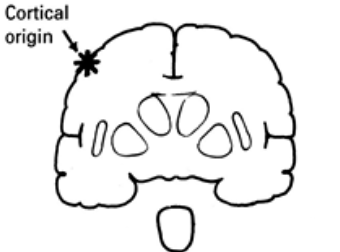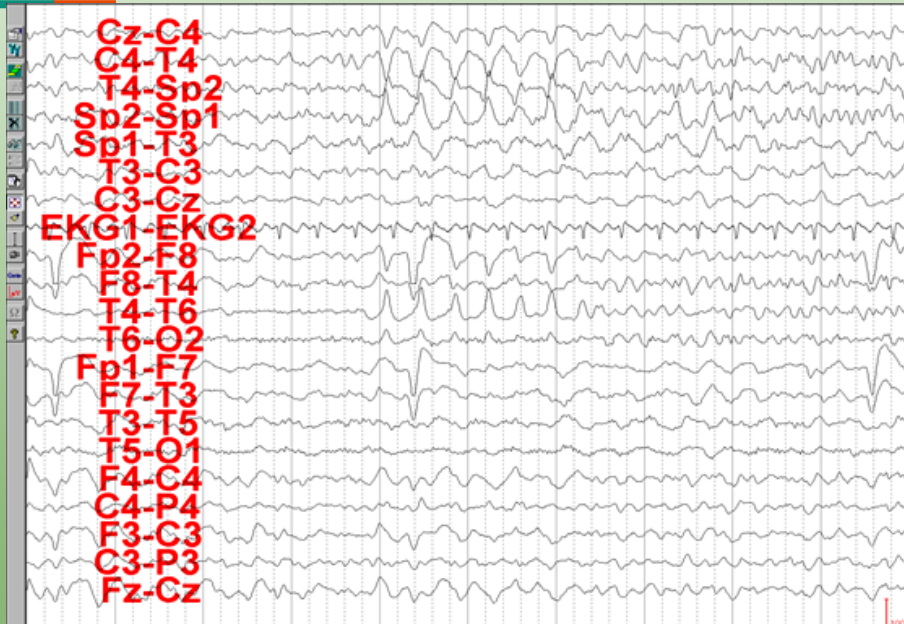IM
Partial Seizures
| Simple | Complex | Secondary generalized |
|---|---|---|
| 1. motor | Simple partial ⇒ altered consciousness | Simple partial ⇒ complex partial ⇒ generalized |
| 2. sensory | ||
| 3. autonomic | ||
| 4. psychic |
Focal (partial) seizures
- Simple partial seizures Motor, sensory, vegetative or psychic symptoms Typically consciousness is preserved

EEG: Partial Seizure
 Right temporal seizure with maximal phase reversal in the right temporal lobe
Right temporal seizure with maximal phase reversal in the right temporal lobe
Simple partial seizures with motor signs
- Focal motor without march
- Focal motor with march
Simple partial seizures with sensory symptoms
- Visual
- Auditory
- Olfactory
- Gustatory
- Vertiginous
Simple partial seizures with autonomic symptoms
- Vomiting
- Pallor
- Flushing
- Sweating
- Pupil dilatation
- Piloerection
- Incontinence
Simple partial seizures with psychic symptoms
- Dysphasia
- Dysmnesic
- Cognitive
- Affective
- Illusions
- Structured hallucinations
- Dysmnesic symptoms “déjà-vu”
- Affective symptoms
- fear and panic
- Cognitive
- Structured hallucination
- living through a scene of her former life again
Complex Partial Seizures
- Simple partial onset followed by impaired consciousness
Partial seizures evolving to secondarily generalized seizures
- Simple Partial Seizures to Complex Partial Seizures to Generalized Seizures
Pediatrics
Partial Seizure
-
Complex: Involves motor* or autonomic# symptoms with altered level of consciousness
-
Simple: Can involve motor,* autonomic# or somatosensory+ symptoms
-
May start in one muscle group and spread
Types of Symptoms
- Motor* - head/eye deviation, jerking, stiffening
- Autonomic# - pupillary dilatation, drooling, pallor, change in heart rate or respiratory rate
- Somatosensory+ - smells, alteration of perception (déjà vu)
Complex Partial Seizures
- Commonly temporal lobe focus
- Begins in one area, then spreads enough to impair consciousness, but not to evoke a generalized tonic-clonic seizure
- Staring is often part of the initial spread
- Also can see automatisms…
Automatisms
- Coordinated involuntary movements
- Consciousness impaired
- Patient does not recall activity
Types
- Simple: Lip smacking, chewing, sounds, picking, tapping, walking straight or in circles
- Complex (behavior involved): Undressing, chewing inedible objects, wandering, aggression